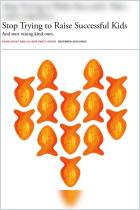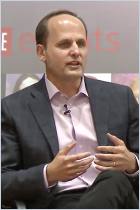Rejoignez getAbstract pour lire le résumé !

Rejoignez getAbstract pour lire le résumé !
Adam Grant
Job Interviews Are Broken. There’s a Way to Fix Them.
Instead of focusing on credentials, let’s give candidates the chance to showcase their will and skill to learn.
The New York Times, 2020
Aperçu
Most job interviews won’t identify the best candidates. What does?
Recommendation
Often, job interviews are futile. Candidates fudge their answers and oversell their qualifications. Managers ask the wrong questions and subconsciously rely on biases. With expert insight and a sense of humor, organizational psychologist Adam Grant walks you through common roadblocks that keep you from hiring the perfect candidate. His examples will encourage you to rethink your job interview process, and build a creative and collaborative team.
Summary
About the Author
Adam Grant is an organizational psychologist at the University of Pennsylvania’s Wharton School and the best-selling author of Originals, a book about nonconformist thinking.


























Comment on this summary